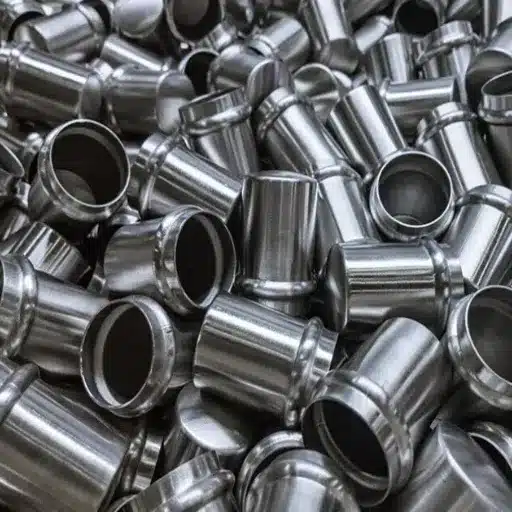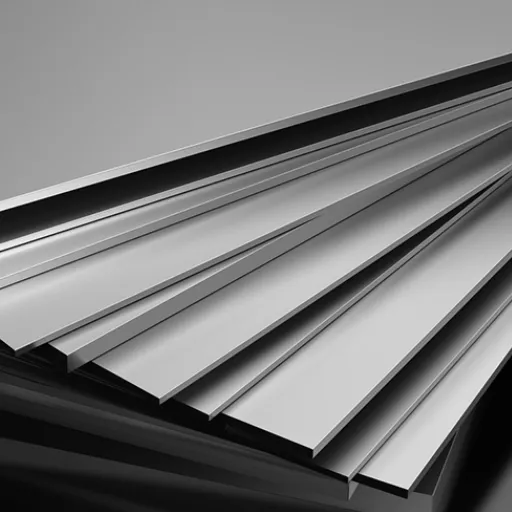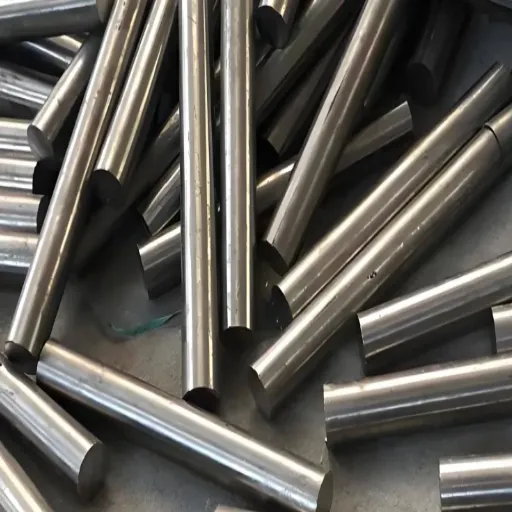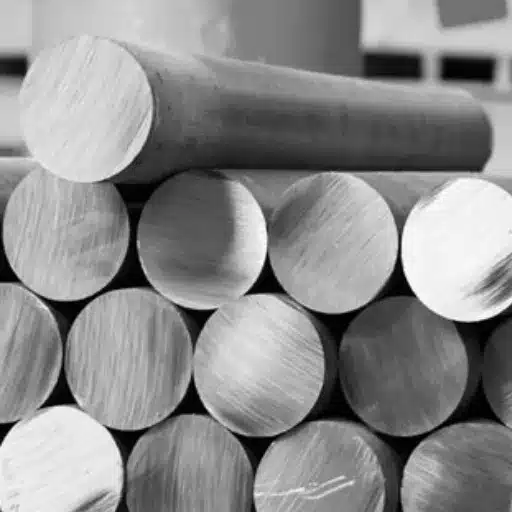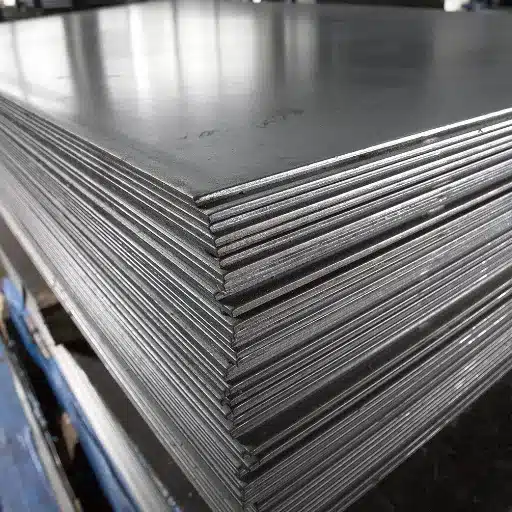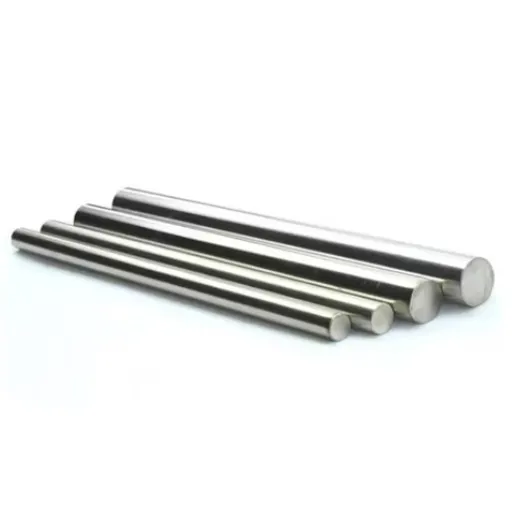Steel is an ability to die for force behind innovation in the automotive industry, with its one implementation being strength, versatility, and durability. Among steel products, 780DP coils have become essential in the manufacturing of next-generation vehicles. So, what do those high-strength steel coils hold in store that makes them so crucial? How is it made? Why is it most suited for the fiercely demanding requirements of present-day automotive applications? This blog delves into the steel coil manufacturing process, highlighting the intricate processes involved in producing 780dp coils and shedding light on the importance of these coils in shaping the future of the automotive sector. Suppose you’re a person from the working world, a manufacturing enthusiast, or just someone interested in how materials go into the cars one drives. In that case, this article has something impressive to say on a topic basis, championed for road-based innovation.
Introduction to 780dp Coils
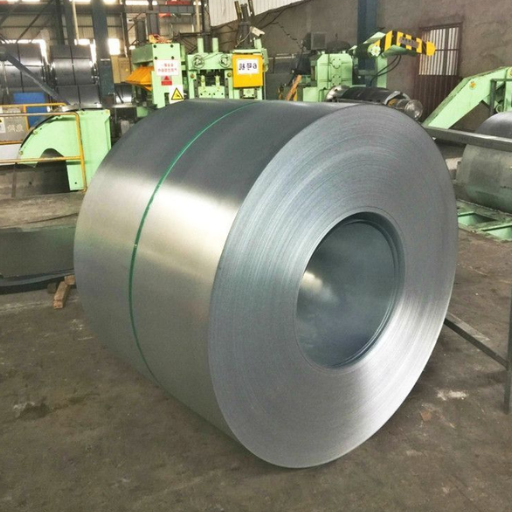
780DP coils are high-strength steel coils specifically designed for demanding automotive applications. Because these coils are powerful and hence highly durable, they are made to withstand heavy stress without compromising performance or safety. Due to their particular composition and treatment, they become highly favored in the production of poultry lighter and, at the same time, fuel-efficient vehicles, with minimal compromise on structural integrity. The great balance between strength and weight represents a crucial factor in addressing the demands of present-day automotive technology, which includes higher safety and environmental efficiency.
What are 780dp Coils?
780DP coils are considered high-strength, hot-dip galvanized steel coils for use in advanced automotive applications, enabling the production of lightweight vehicles that improve fuel efficiency and exhibit enhanced structural performance.
Importance of 780dp in Automotive Applications
780DP steel coils play a vital role in automotive design as manufacturers strive to strike the right balance between lightweight vehicle designs and structural integrity. The product is specially developed for automotive applications, ensuring strength, safety, and durability in structural beams, crash zones, and reinforcement parts.
The high strength-to-weight ratio of 780DP steel enables substantial weight loss without compromising performance or safety. Industry reports indicate that the application of advanced high-strength steel (AHSS), such as 780DP, is capable of reducing vehicle body weight by up to 25-30%. A good fuel economy is an outcome of weight reduction, and fuel economy could increase by around 6-8% for each 10% decrease in vehicle weight. Moreover, lighter vehicles equal reduced carbon output, in line with the global environment.
Moreover, 780DP steel excels in terms of formability and weldability, making it very suitable for complex automotive designs. The hot-dip galvanization provides superior protection against corrosion, offering a level of security to automotive parts exposed to various environmental conditions. The manufacturers also began to appreciate this steel’s energy-absorbing ability in collisions, which helps increase crash safety performance.
A distinctive application of 780dp lies in EV platforms. Amidst the burgeoning EV market, lightweight structural materials like 780dp steel are crucial in offsetting the battery system’s weight and effectively balancing vehicle range and efficiency. As automotive manufacturers continue to innovate towards cleaner transportation, 780DP steel is expected to remain a foundational material in the future.
Overview of Steel Coil Types
| Steel Coil Type | Key Features | Performance | Applications | Production Process |
|---|---|---|---|---|
| Hot Rolled Steel Coil | Rough surface, black/blue-gray color | Good ductility, cost-effective | Construction, machinery, pressure vessels | High-temperature rolling, cooling |
| Cold Rolled Steel Coil | Smooth, silver-white surface | High strength, precise dimensions | Automotive, appliances, furniture | Room-temperature rolling, pickling |
| Galvanized Steel Coil | Zinc-coated, corrosion-resistant | Long-lasting, durable | Roofing, automotive, outdoor equipment | Hot-dip or electro-galvanizing |
| Color Coated Steel Coil | Painted surface, decorative | Weather-resistant, fire-resistant | Home appliances, construction, decoration | Coating and drying on steel sheets |
| Stainless Steel Coil | Smooth, bright surface | High corrosion resistance, durable | Food processing, medical, construction | Hot or cold rolling, chromium addition |
| Alloy Steel Coil | Smooth, uniform surface | High strength, wear-resistant | Aerospace, automotive, energy | Alloying elements, hot/cold rolling |
| Galvannealed Steel Coil | Matte finish, paintable | Corrosion-resistant, good adhesion | Automotive panels, electrical enclosures | Zinc coating, reheating for alloying |
| Floor Plate Steel Coil | Raised diamond pattern | Slip-resistant, durable | Industrial flooring, stair treads | Hot rolling with patterning |
Manufacturing Processes of Cold Rolled Steel Coils
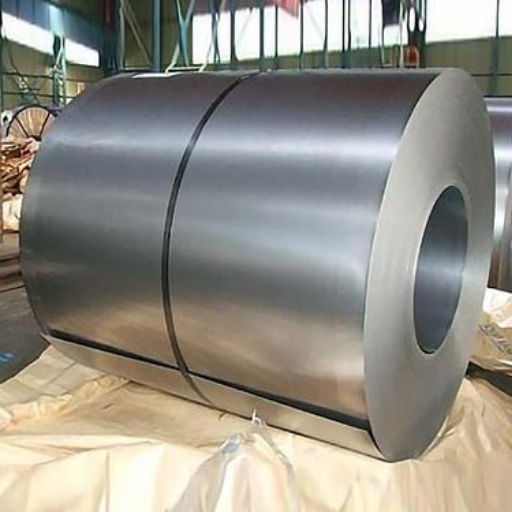
Starting with hot-rolled steel, cold rolling is a process used to produce cold-rolled steel coils. After a hot-rolled steel slab has cooled, it is pickled to remove surface impurities. The clean slab then undergoes cold rolling, where it is squeezed between rotating rolls under high pressure at room temperature to reduce its thickness and improve the surface finish. The rolling process strengthens the steel by realigning its structure and attaining the required thickness. Post rolling, the steel is annealed to enhance ductility and relieve internal stresses. At the end of this cycle, the coils are trimmed and coated as necessary to meet specific requirements for various applications.
Cold Rolling Techniques
Cold rolling involves compressing steel at room temperature to generate tensile strength, dimensional accuracy, and surface finishing. It thus finds applications in industries like automotive, construction, and appliances.
Comparison with Hot Rolled Steel
| Parameter | Cold Rolled Steel | Hot Rolled Steel |
|---|---|---|
| Surface Finish | Smooth, polished | Rough, scaled |
| Strength | Higher tensile strength | Lower tensile strength |
| Ductility | Less ductile | More ductile |
| Dimensional Accuracy | High precision | Less precise |
| Aesthetic Appeal | Better appearance | Less attractive |
| Cost | More expensive | More cost-effective |
| Production Process | Rolled at room temperature | Rolled at high temperature |
| Applications | Automotive, appliances, furniture | Construction, structural components |
| Corrosion Resistance | Moderate | Lower |
| Production Time | Longer | Shorter |
Quality Control in Manufacturing
Quality control is one of the most critical aspects of manufacturing in the steel industry, ensuring that products meet industry standards and client requirements. Modern steel production relies on advanced technology and stringent protocols to monitor and optimize each phase of the process. Nowadays, automated inspection systems with AI sensor technology have become widely used to detect surface defects and distinguish one surface from another at speeds beyond that of any human inspector.
Statistical process control (SPC) is usually applied to production parameters such as thickness, width, and tensile strength. Recent statistics say that steel manufacturers that invest heavily in SPC report average defect reductions of up to 40%. Non-destructive testing (NDT) using ultrasonic or radiographic techniques is employed to verify the internal integrity of the steel without altering its properties.
Environmental compliance is also part of quality control. To mitigate CO2 emissions in line with global sustainability targets, many plants utilize emissions monitoring systems. Data from the World Steel Association indicates that steel producers who adopt energy-efficient practices have seen a 21% reduction in energy consumption per ton of steel in the past twenty years up until 2023.
In this manner, by combining modern technology-based solutions with highly organized downstream processes of quality control, the steel manufacturing industry effectively addresses modern-day applications, prioritizing waste minimization and sustainability concerns.
Mechanical Properties of 780dp Coils
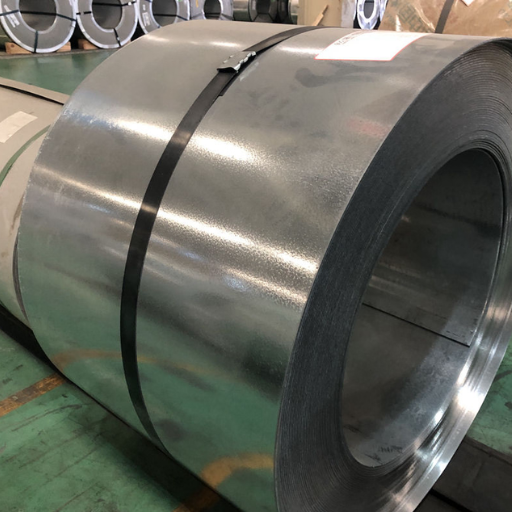
780-DP steel bar coils, renowned for their strength and ductility, are utilized in demanding fields such as automotive structures. Their tensile strength is generally around 780 MPa, and elongation properties are very good, so they do not readily deform under load. Therefore, with such strength and formability, especially suitable for stamping and shaping processes, the manufacturing stage becomes very efficient. The mechanical properties imparted during this process lend the materials sufficient durability for use in environments where lightweight materials with structural integrity are demanded.
Tensile Strength and Ductility
Theoretically, tensile strength and ductility are the main features that define how an advanced high-strength steel performs in demanding applications. The below-described data and properties highlight these essential characteristics:
- Tensile Strength: Tensile strength in AHSSs ranges from approximately 600 MPa to beyond 1,200 MPa, depending upon the particular grade and alloy composition. Thus, AHSSs are designed for high-load applications.
- Elongation: Normal elongation capabilities range between 10 and 25%, thereby exhibiting good ductility and allowing for larger deformation before failure.
- Strain Hardening: The AHSS can be strain hardened to a relatively high degree, which is beneficial during forming, as it also resists necking.
- Yield Ratio: Yield-to-tensile strength ratios typically range between 0.6 and 0.8, indicating a harmonious relationship between tensile strength and ductility.
- Thickness Optimization: Through advanced rolling techniques, AHSS is sufficiently light to support lightweight construction while maintaining safety equivalently at thinner thicknesses.
Impact Resistance and Durability
Advanced High-Strength Steels (AHSS) are considered to be impact-resistant and durable, making them a good choice for applications where a rugged and reliable structure is required. Five factors explain their performance capacity related to this:
- High Energy Absorption Capacity: AHSS, during an impact, can absorb and dissipate large amounts of energy, thereby preventing the material from cracking and ensuring safety in areas such as automotive crash zones. Studies show energy absorption rates that are over 30% higher than those of conventional steels.
- Fatigue Resistance: Due to their higher fatigue strength, AHSS materials can withstand cyclic loading over long periods without significant deterioration; thus, structural components that experience repeated stress can last longer.
- Corrosion Resistance: Protective coatings and alloying elements enhance the corrosion resistance of AHSS against environmental factors, including moisture and chemical exposure, thereby extending the lifespan of an AHSS structure in harsh conditions.
- Work Hardening Effect: Due to work hardening, AHSS strengthens under strain; hence in dynamic scenarios such as collision, it protects structural integrity.
- Temperature Stability: AHSS maintains its properties over a broad range of temperatures, offering impact performance in both severe chill and high heat conditions, which is quite essential for varied operational conditions.
Comparison with Dual Phase Steel
| Parameter | 780DP Coils | Dual Phase Steel |
|---|---|---|
| Strength | Tensile strength ≥ 780 MPa | Varies, typically 590-1180 MPa |
| Ductility | Moderate | High |
| Microstructure | Ferrite and martensite | Ferrite and martensite |
| Formability | Good for complex shapes | Excellent for deep drawing |
| Weldability | Good | Excellent |
| Applications | Automotive safety parts, frames | Automotive panels, bumpers, reinforcements |
| Corrosion Resistance | Optional coatings available | Optional coatings available |
| Production Process | Controlled rolling and cooling | Hot or cold rolling, annealing |
| Cost | Higher due to advanced properties | Varies by grade and application |
| Key Advantage | High strength with impact absorption | Balance of strength and ductility |
Applications of 780dp Coils in the Automotive Industry
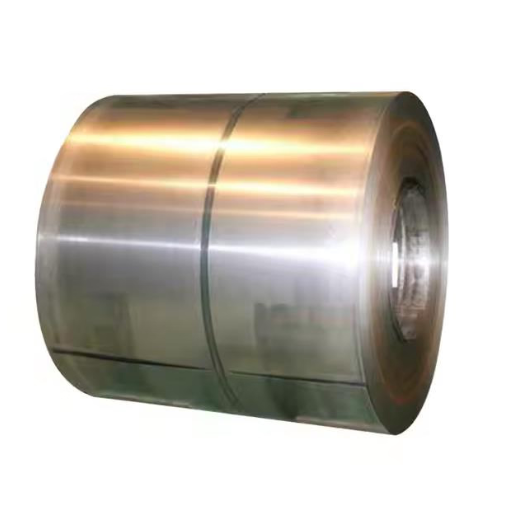
| Application Area | Specific Uses | Key Benefits |
|---|---|---|
| Crash Safety Parts | Door beams, bumper reinforcements | High impact energy absorption |
| Structural Components | Chassis frames, cross-members | High strength and durability |
| Body Panels | Inner door panels, roof supports | Lightweight and formable |
| Reinforcements | Side intrusion bars, roof supports | Enhanced crash resistance |
| Automotive Frames | Car frames, load-bearing structures | Lightweight with high rigidity |
| Suspension Systems | Control arms, suspension links | Improved strength and fatigue resistance |
| Energy Absorption Zones | Crumple zones, crash zones | Superior safety performance |
Use in Automobile Body Structures
780dp coils are, very properly, bestowed with the moniker “Body in White” coil due to their perfect blend of high strength and ductility. The following are five examples of the use of 780dp coils:
- Door Reinforcements
- Increases resistance to impacts during side collisions.
- Aids the overall safety of the passengers.
- Roof Rails
- Provides strength to the structure without sacrificing weight.
- Can be relied upon to provide performance during a rollover scenario.
- Bumper Beams
- Absorbs energy better from impacts occurring in the front and rear.
- Helps reduce damage to the vehicle and injuries to the occupants.
- Floor Panels
- Gives rigidity to the vehicle’s floor structure.
- Gives lesser deformation when subjected to heavy loads.
- Pillars (A, B, C)
- Returns to the body frame better vertical load.
- Improves crashworthiness and stabilization of the vehicle.
These applications demonstrate how 780dp coils contribute to achieving improved safety, reduced weight, and enhanced future vehicle designs.
Advantages of Using Cold-Rolled Steel
Cold-rolled steel, with all its advantages, has become a matter of preference in many industries. Here are five inherent advantages:
- Better Strength and Durability
- Cold rolling enhances the mechanical properties of steel, thereby rendering it stronger and less prone to deformation.
- It can increase the tensile strength up to 20 percent more than that of the hot-rolled steel.
- Better Surface Finish
- Due to precision processing, cold-rolled steel results in a smooth, uniform, and high-quality surface.
- Needs further consideration in cases where a fine finish is required for coating or painting.
- Good Dimensional Accuracy
- In cold rolling, tolerances are tighter and thicknesses are uniform, ensuring better dimensional accuracy.
- This means less material wastage and, consequently, a better fit and function in the application.
- Cost-Effective Manufacturing
- It may have a high initial cost of production; however, its extended durability and material precision help mitigate stocking waste, resulting in significant savings over a long period.
- Lower maintenance costs also contribute to cost efficiency.
- Application Versatility
- Cold-rolled steel is used in various industries, including automotive, construction, and manufacturing.
Due to their properties, they are used in structural work, appliances, and precision tools.
Future Trends in Automotive Steel
The automotive industry is transforming, with manufacturers focusing on sustainability, efficiency, and innovation. The Advanced High-Strength Steel (AHSS) tops the market due to its ability to reduce vehicle weight while ensuring structural integrity and safety. The growth prospects for the AHSS market are significant, with a projected global market value of $39 billion by 2030, registering a CAGR of 7.7% from 2023.
Another trend on the rise involves using UHSS and hot-stamped steel to comply with safety and emission standards. UHSS offers intense crash resistance, thus sitting at the heart of making safer vehicles without compromising fuel efficiency. Hence, manufacturers are increasingly utilizing these materials to reduce CO2 emissions, thereby contributing to global sustainability.
Electric vehicles (EVs) have had a slight influence on automotive steel trends. They require solutions that are lightweight yet sturdy to optimize battery performance and range. For one, new grade steels are being developed for thermal management of EV battery enclosures, thus improving safety and efficiency.
The manufacturers are also involved in coating and producing corrosion-resistant steel to extend the life of vehicles. Further accelerating is the production of green steel, such as hydrogen-based steelmaking, which aims to reduce the carbon footprint of steel production. With such developments in its arsenal, automotive steel continues on the path of transformation, preparing itself to meet the future demands of safety, performance, and environmental responsibility.
Choosing the Right Supplier for Steel Coils
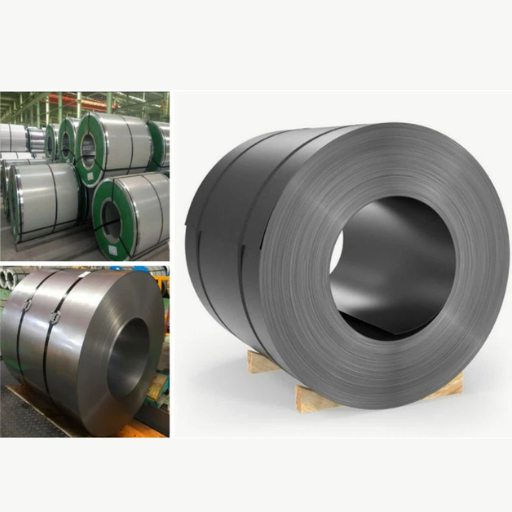
Your supplier for steel coils should be your top consideration for reliability, quality, and cost-effectiveness. You will want suppliers who have a strong reputation, sound industry experience, and ensure that their products meet the necessary certifications under their standards. Materials must, therefore, be of consistent quality and meet your size and grade specifications. The delivery capacity should also be tested to guarantee timely and efficient shipment. Also, consider the support and technical help provided. Suppliers committed to sustainable and environmentally conscious practices are another worthy contender in response to growing industry requirements.
Factors to Consider When Selecting a Supplier
When choosing a supplier, I consider the consistency of quality being offered, as well as how well the product meets my specifications for size and grade. I choose suppliers who are reliable in terms of delivery, offer good customer support, and provide technical assistance whenever necessary. Environmentally conscious practices on the sustainability spectrum are also among my considerations, in keeping with the current industry competition.
Importance of Certifications and Standards (JIS)
Before manufacture, the product needs to distinguish how certifications and standards ensure its quality, safety, and reliability. The Japanese Industrial Standards (JIS) provide a robust foundation for manufacturing and quality assurance processes across various industries. In addition to improving consistency for products, these standards also add some public credibility, both in Japan and abroad. This is one of the few certifications related to the Japanese Industrial Standards system, which is highly valued. It implies a high level of precision and trust, recognized internationally. Some necessary certifications and standards under JIS are as follows:
- JIS Q 9001 (Quality Management Systems): This standard focuses on ensuring that products and services are consistently of high quality and that production is efficient, thereby achieving customer satisfaction.
- JIS Q 14001 (Environmental Management Systems): Concerned with sustainable practices, this standard aims to guide organizations in minimizing their environmental impact within the framework established by various regulatory regimes.
- JIS Z 8401 (Statistical Methods): Gives guidelines about the statistical techniques used for quality and process improvement in manufacturing.
- JIS B 2401 (O-Ring Dimensions): Defines the required dimensions and tolerances for O-rings to assure compatibility and reliability in their use in mechanical systems.
- JIS G 3112 (Steel Bars for Concrete Reinforcement): Sets forth the requirements for steel bars intended for use in concrete constructions to ensure durability and structural integrity.
By following these standards, the manufacturers can make quality products that meet industry standards and consumer expectations. These certifications allow building trust and sustained business growth.
Supplier Capabilities and Offerings
We are a supplier specializing in delivering high-quality materials and services tailored to our clients’ needs. We supply a wide range of products that conform to international standards, ensuring they perform as expected. Furthermore, we can also provide tailor-made solutions, technical support, and prompt delivery tailored to project demands. We prioritize quality and customer satisfaction to foster long-term collaboration with our clients.
References
- AHSS Application Guidelines – Version 6.0
This document provides comprehensive guidelines on the applications of Advanced High-Strength Steels (AHSS), including DP780.
Link to source - Determination of Uniaxial Large-Strain Workhardening of High-Strength Steel Sheets
This paper discusses the mechanical properties and testing of high-strength steel sheets, relevant to DP780.
Link to source - Forming of Advanced High-Strength Steels (AHSS)
This chapter from ASM International discusses the forming characteristics of various AHSS grades, including DP780.
Link to source
Frequently Asked Questions (FAQ)
What are the mechanical properties of 780dp coils?
The mechanical properties of 780dp coils include high tensile strength, excellent toughness, and significant formability. These properties make them suitable for various applications in the automotive and construction industries, where structural integrity and load-bearing capabilities are essential.
Who are the leading suppliers of 780DP steel coils?
Leading suppliers of 780DP steel coils include MST Steel Corp and other specialized providers that focus on high-strength steel products. These suppliers ensure a consistent quality of steel coils optimized for various manufacturing processes.
What is the significance of tensile strength in 780DP steel coils?
Tensile strength is a critical factor in 780dp steel coils as it determines the material’s ability to withstand pulling forces without breaking. This property is vital for applications that require high-strength materials, ensuring safety and durability in automotive manufacturing and structural applications.
How are 780dp coils manufactured?
The manufacturing processes for 780dp coils typically involve advanced techniques such as cold forming and laser cutting. These processes enhance the steel’s mechanical properties, ensuring high performance while maintaining a clean surface quality and corrosion resistance.
What are the applications of 780DP steel products?
780DP steel products are widely used in the automotive industry, particularly for safety components that require high strength and toughness. They are also suitable for structural applications due to their load-bearing capabilities and excellent formability.
What is the corrosion resistance of 780dp coils?
780dp coils typically have good corrosion resistance, especially when galvanized or coated with protective layers. This quality extends the service life of the steel products and reduces maintenance costs in various applications.
How do the mechanical properties of 780DP compare to other steel types?
Compared to other steel types, 780dp coils exhibit superior mechanical properties, including higher tensile strength and enhanced toughness. This makes them a preferred choice over traditional steel sheets for demanding applications in the automotive and structural engineering industries.
What is the role of silicon in 780DP steel coils?
Silicon plays a crucial role in enhancing the mechanical properties of 780dp steel coils. It enhances the steel’s strength, toughness, and resistance to deformation, making it a crucial alloying element in high-strength steel formulations.

